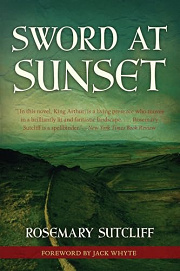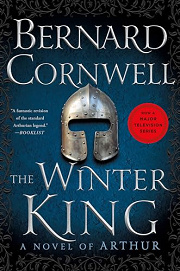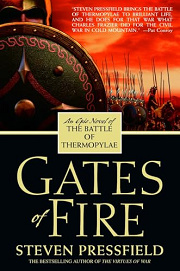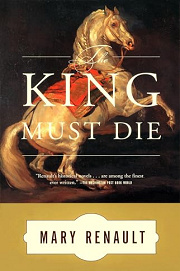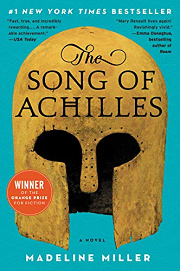Share your thoughts in a quick Shelf Talk!
Sword at Sunset by Rosemary Sutcliff
In a gritty, twilight age of Britain, a battle-worn warlord seeks to forge unity from the embers of a fading realm. Sword at Sunset grounds Arthurian legend in blood, loyalty, and the hard choices of leadership—an atmospheric retelling for readers who crave myth made mortal.
Have you read this book? Share what you liked (or didn’t), and we’ll use your answers to recommend your next favorite read!
Love Sword at Sunset but not sure what to read next?
These picks are popular with readers who enjoyed this book. Complete a quick Shelf Talk to get recommendations made just for you! Warning: possible spoilers for Sword at Sunset below.
In Sword at Sunset, did you enjoy ...
... a mud-and-blood Arthurian Britain stripped of enchantment, where war-leaders make brutal, pragmatic choices?
The Winter King by Bernard Cornwell
If what hooked you in Sword at Sunset was following Artos through rain-soaked campaigns and hard calls—right down to Badon and the ruin that follows—Cornwell’s The Winter King will feel like the same cold iron. Told by Derfel in raw, first-person recollection, it gives you a similarly ground-level Arthur: battlefields churned to muck, fragile alliances, and a love triangle that echoes the Artos–Bedwyr–Guenhumara fracture with its own vicious edges. You’ll recognize that same unsentimental Britain where kings bargain in smoky halls and victory always exacts a price.
... an intimate, first-person war memoir that turns campaigns into lived experience and comrades into family?
Gates of Fire by Steven Pressfield
You liked hearing Artos speak in his own voice—reflecting on the Companions, the Saxon shield-walls, and the weight of command as if from a deathbed. Gates of Fire mirrors that immediacy: Xeones, a survivor of Thermopylae, recounts the march, the training, and the last stand with the same bruised candor Artos brings to his chronicle. If Bedwyr’s maimed hand and the fellowship at Artos’s fire stayed with you, you’ll be drawn to the brotherhood of Leonidas’s Spartans, the way small moments of loyalty and fear sharpen the clash of spears.
... a myth retold as plausible history, rich with tactile detail and the cost of leadership?
The King Must Die by Mary Renault
If Sutcliff’s grounded take on Arthur—Roman drill, cavalry tactics against Saxon shield-walls, and the politics of hill-forts—won you over, Renault’s The King Must Die offers that same “what if it really happened this way?” magic. Theseus narrates his rise from Troizen to the bull-leaping rings of Knossos with the kind of everyday texture Sutcliff gives to Artos’s campaigns: oaths sworn in cramped halls, the logistics behind glory, and the dangerous charisma of a leader who’s always one misstep from disaster.
... a human-scaled, historically textured retelling of heroic legend that centers love amid war?
The Song of Achilles by Madeline Miller
If the tragic tangle between Artos, Bedwyr, and Guenhumara cut deep for you—how private love collides with public duty—The Song of Achilles channels that same ache. Achilles and Patroclus move toward Troy knowing that glory and doom ride together, much as Artos marches toward Badon aware of the personal fractures shadowing victory. Miller keeps the myth close to the ground—training, camp life, shifting loyalties—so the spear-thrusts and betrayals land with the same lived-in immediacy you felt with Artos and his Companions.
... a sweeping, life-spanning chronicle of a statesman’s rise and fall against tectonic historical change?
The Egyptian by Mika Waltari
If you loved how Sword at Sunset follows Artos across years—uniting war-bands, fighting Saxons, and watching Britain shift beneath his feet—The Egyptian delivers that same breadth. Sinuhe narrates a lifetime that crosses courts and kingdoms, where choices ripple outward the way Artos’s alliances and battles reshape the island. The result is an epic arc with the intimate feel of a single man’s voice, the kind of scope that lets triumph and bitterness sit side by side by the end.
Unlock your personalized book recommendations! Just take a quick Shelf Talk for Sword at Sunset by Rosemary Sutcliff. It’s only a few questions and takes less than a minute.
